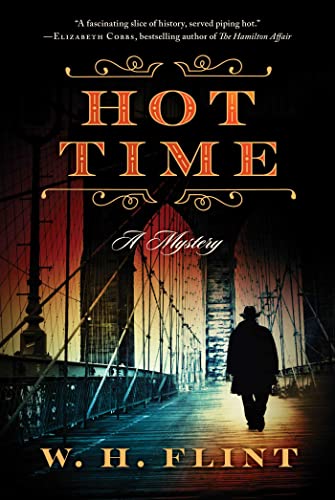Hot Time: A Mystery
Though this is a debut novel, W. H. Flint is the pen name of a historian, and Hot Time rattles through tension and suspense drenched in American history. Flint selects a brief exhilarating period in the life of Theodore “Teddy” Roosevelt: when the native-born New Yorker became NYC Police Commissioner and teamed up with “muckraking” journalist Jacob Riis to take note of the conditions of the city’s poor immigrants, as well as the corruption in his police force, and do his best to correct both.
The book is cleverly positioned during the 11 days of the deadly heat wave, or as it is called it the book, “hot wave,” of August 1896. Though the commissioner and journalist are present, the tale unfurls from the points of view of a Jewish police officer, Otto Raphael, “Rafe,” and a recently orphaned newsboy, “Dutch.” But is he really an orphan? He has “lost” his mother, and when he forms an alliance with the unexpectedly kind policeman, his burning request is for information on her whereabouts.
That will have to wait, though, because Dutch has accidentally become a witness to a murder, one that may involve corrupt police officers. Soon there’s a manhunt underway—not for the killer, but for Dutch, and his life is on the line. There are others also lined up by the killers, who may or may not be allied with anti-government activists. Money talks, and the notorious separation of the poor and the rich is well underway in this America of grit and determination.
The story is lively, well written, and accessible for both adults and teens, with rewarding twists and a highly satisfying finale.










